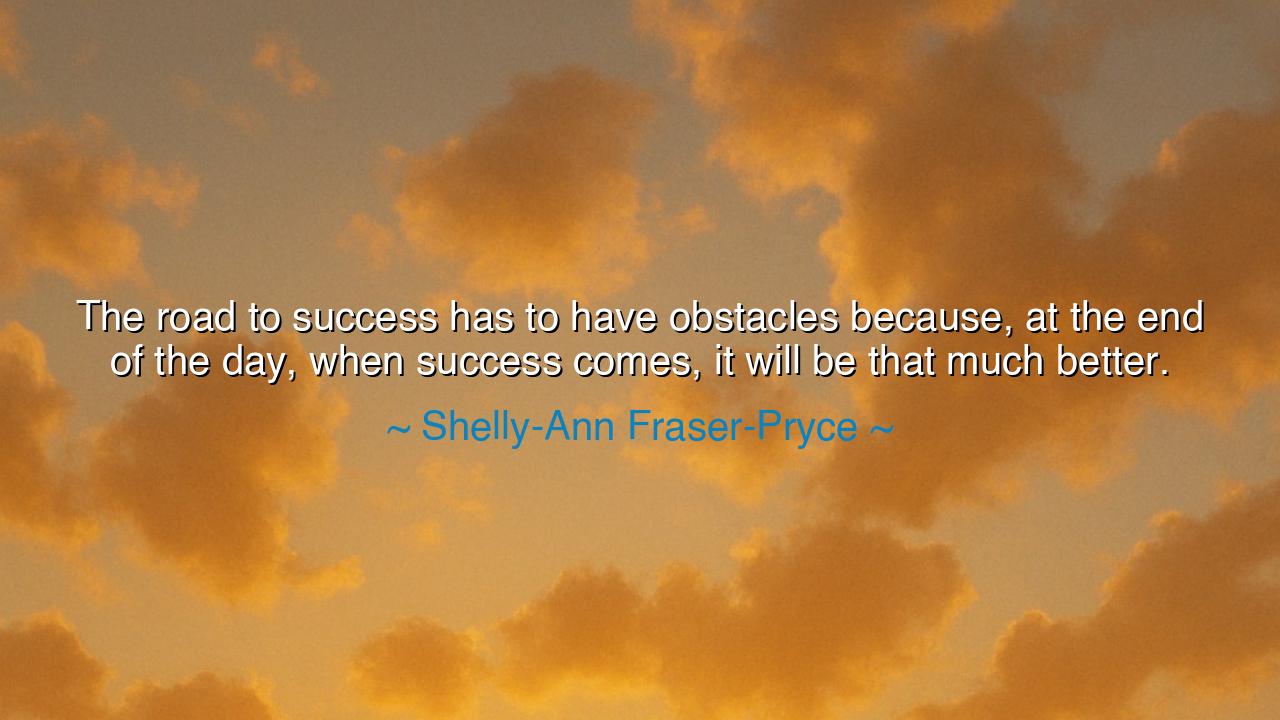
The road to success has to have obstacles because, at the end of
The road to success has to have obstacles because, at the end of the day, when success comes, it will be that much better.






Hear the words of Shelly-Ann Fraser-Pryce, the sprinting queen of Jamaica, who declared: “The road to success has to have obstacles because, at the end of the day, when success comes, it will be that much better.” In this declaration lies the wisdom of one who has run not only on the track, but through the storms of life. For she reminds us that success without struggle is hollow, like a crown of paper that burns in the first rain. True victory is sweet precisely because it has been earned through hardship, and the glory of triumph shines brighter when it rises from the shadows of adversity.
The ancients too bore witness to this truth. Herodotus wrote that “adversity has the effect of drawing out strength which in prosperous times would have lain dormant.” The Greeks knew that without trial, there can be no hero. Hercules himself was not made great by ease, but by his labors—by lions and hydras, by impossible tasks that tempered him into legend. So it is with Fraser-Pryce’s words: the obstacles are not curses, but the very forge in which greatness is formed.
Consider the story of Nelson Mandela. His road to success was not smooth, but marked by 27 years in prison, where iron bars and stone walls became his daily companions. Yet when at last he emerged, he carried with him not bitterness but strength, not vengeance but wisdom. His triumph was not despite his obstacles, but because of them. And when freedom for South Africa finally came, it was “that much better” because it had been bought with suffering and endurance.
So too did Fraser-Pryce herself live this truth. Though crowned Olympic champion, she faced injury, doubt, and even the challenge of returning to competition after giving birth. Many thought her career finished, yet she pressed on, embracing the obstacles as part of her path. And when she returned to reclaim her place as the world’s fastest woman, her victory was not merely athletic—it was proof that resilience itself is the highest form of success.
The teaching is clear: you must not despise the obstacles on your path. They are not there to break you, but to shape you, to prepare you for the weight of the crown you seek. A road without stones teaches no endurance; a sea without storms teaches no seamanship. If life gives you struggle, embrace it, for it is the sign that you are walking a road worthy of the name “success.”
Practical wisdom follows: when trials come, do not ask, “Why me?” Instead ask, “What strength can I gain from this? What lesson lies hidden here?” Keep a journal of your obstacles, and record the growth that follows. Surround yourself with those who remind you of your resilience, and when you stumble, remember that stumbling is part of the journey. Keep running, as Fraser-Pryce ran, with eyes fixed not only on the finish line but on the wisdom gained from every hurdle.
So let this saying be passed down as law: “The road to success has to have obstacles.” Do not curse the stones in your path, for they are the very steps to your destiny. When at last you stand in victory, you will not rejoice only in the crown, but in the strength forged along the way. And in that moment, your success will not be small or fragile—it will be radiant, unshakable, and eternal.






AAdministratorAdministrator
Welcome, honored guests. Please leave a comment, we will respond soon